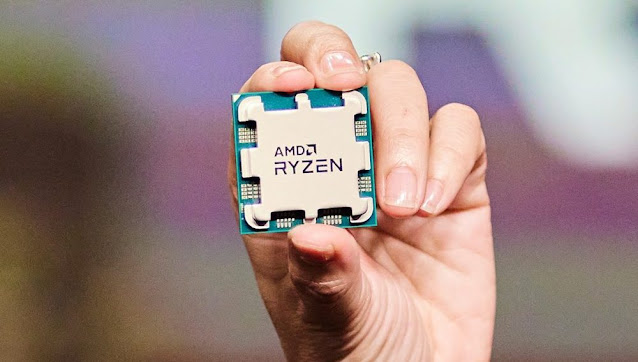AMD Ryzen 7000 Release Date
Through a recent presentation in China, AMD has announced
the debut of its next-generation AMD Ryzen 7000 desktop CPUs and AM5
motherboards. A graphic in the presentation indicates market availability for
the new CPUs on September 15, which corresponds to the previously reported
launch date of Fall 2022.
— Алексей (@wxnod) June 17, 2022
AMD Ryzen 7000 CPUs, as previously reported, will be based
on the company's new Zen 4 architecture, which is intended to boost IPC by
8-10%. These chips will be manufactured using TSMC's 5nm technology and will
use the same chiplet design as previously, but with a higher core count.
The maximum core count for AMD Ryzen 7000 will remain at 16
cores and 32 threads, but clock rates will be significantly improved. According
to reports, these CPUs will have rates of up to 5.85GHz. TDP will vary from 65
to 170 watts (170 watts maximum TDP / 230 watts maximum PPT).
AMD claims that AMD Ryzen 7000 desktop CPUs with Zen 4 cores
will outperform Zen 3 by 15% in single-threaded performance. A built-in RDNA 2
iGPU will be available through HDMI 2.1 on the CPUs. For the first time on an
AMD CPU-powered platform, the new platform will support DDR5 memory as well as
PCIe Gen 5.0.
On the same day as the AMD Ryzen 7000 CPUs, AM5 motherboards
will be released.
AMD Ryzen 7000 Series Pricing
So yet, there's been no word about how much the AMD Ryzen
7000 series will cost. That's hardly surprising, given that AMD generally only
announces price at the launch event. The suggested cost for the newest AMD Ryzen
5000 Series desktop CPUs, on the other hand, provides you an idea of what
you'll pay:
- Ryzen 9 5950X – £735.84/US$799
- Ryzen 9 5900X – £505.61US$549
- Ryzen 7 5800X – £413.51/US$449
- Ryzen 5 5600X – £275.36/US$299
In comparison to the Ryzen 4000 series, these prices imply a
$50 increase. Given the new architecture and manufacturing technique being
employed, you may be asked to pay even more for the future iteration.
AMD Ryzen 7000 Zen 4 Overview
- Up to 16 cores and 32 threads on TSMC 5nm process (N5 used for compute die)
- (up to) >5.5 GHz boost
- 6nm I/O die, DDR5 memory controllers, PCIe 5.0 interface
- DDR5 only (no DDR4 support)
- RDNA 2 integrated GPU
- Zen 4 architecture has 8 to 10% performance gain
- >15% gain in single-threaded work, >35% overall performance gain (multi-threaded workloads), >25% performance-per-watt gains
- AM5 Socket LGA 1718, backward compatible with AM4 coolers
- 600-Series Chipset: X670E Extreme, X670, and B650 Motherboards
- up to 170W TDP, 230W peak power
- up to 125% more memory bandwidth per core
- Support for AVX-512
- 3D V-Cache Zen 4 models will come to market




No comments:
Post a Comment